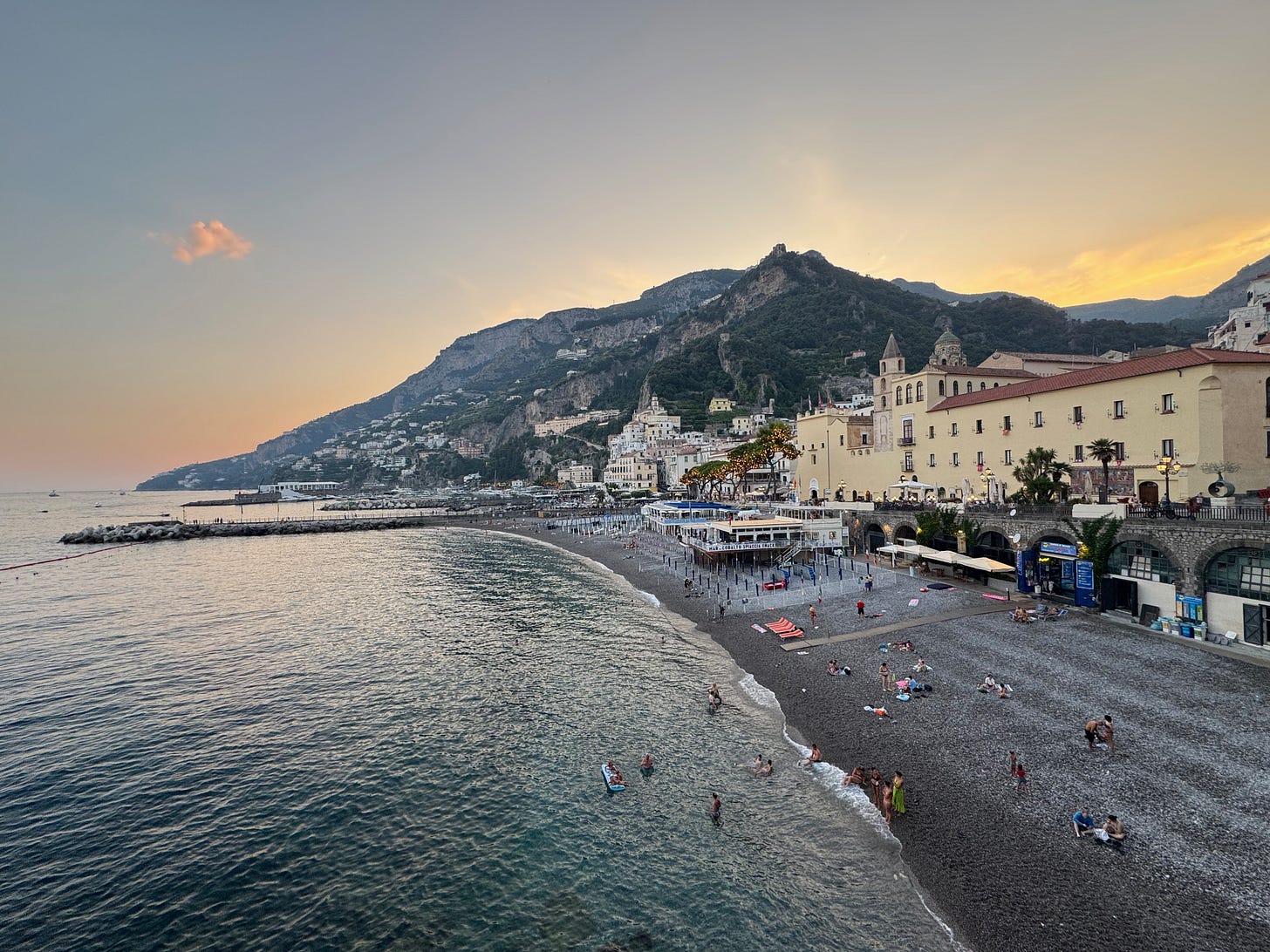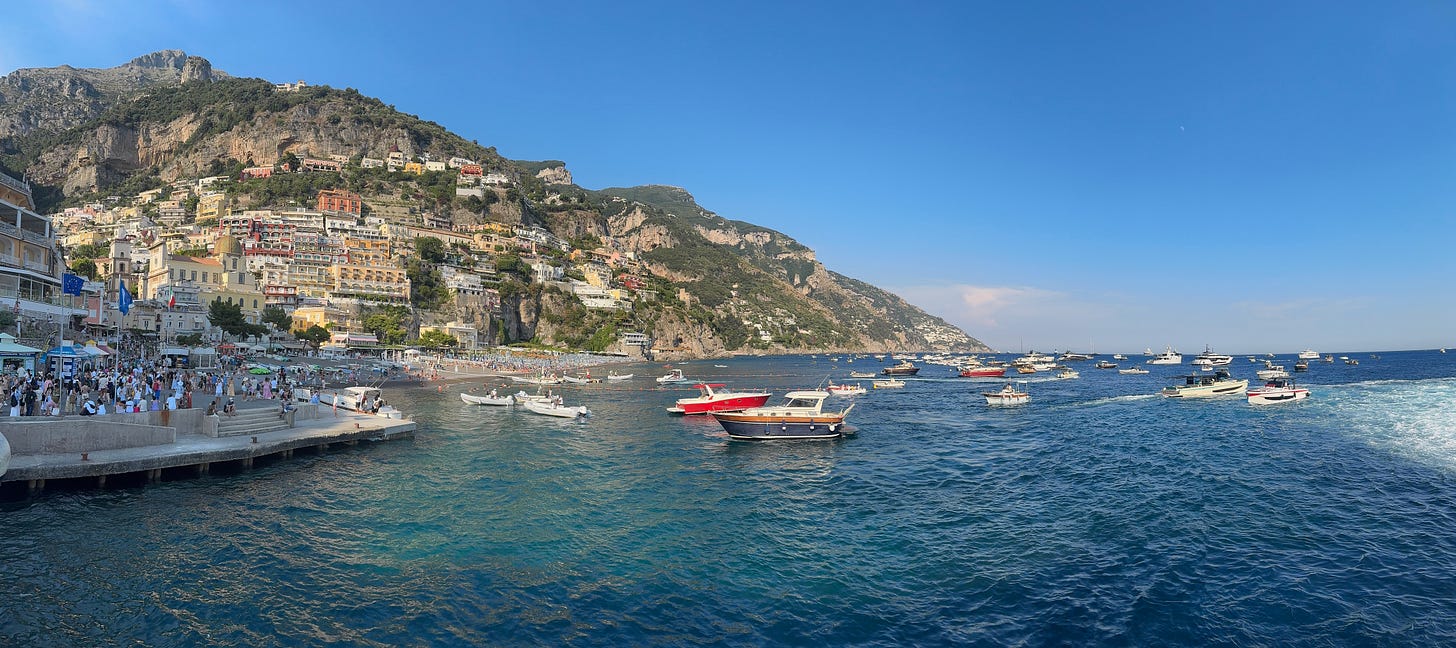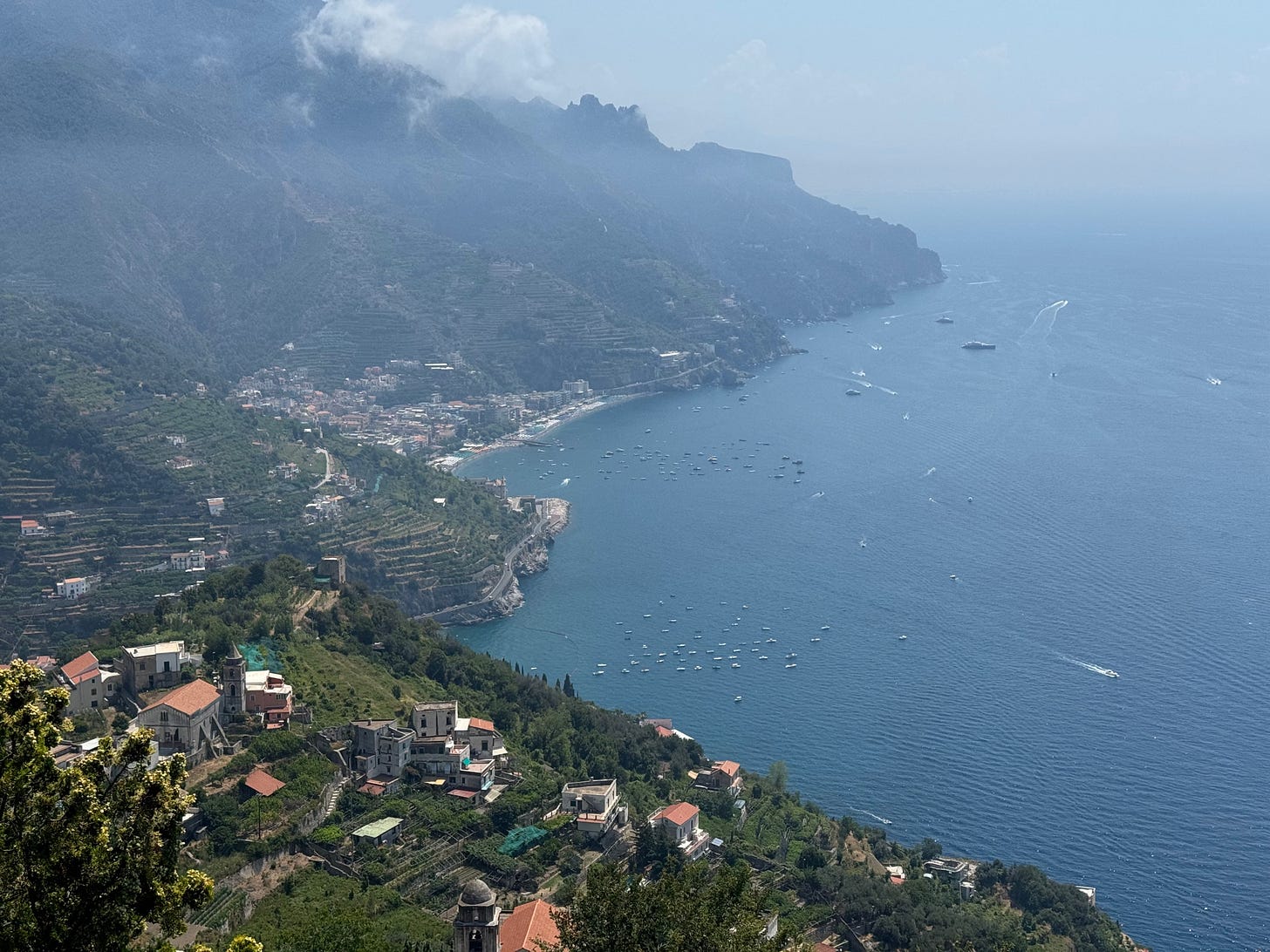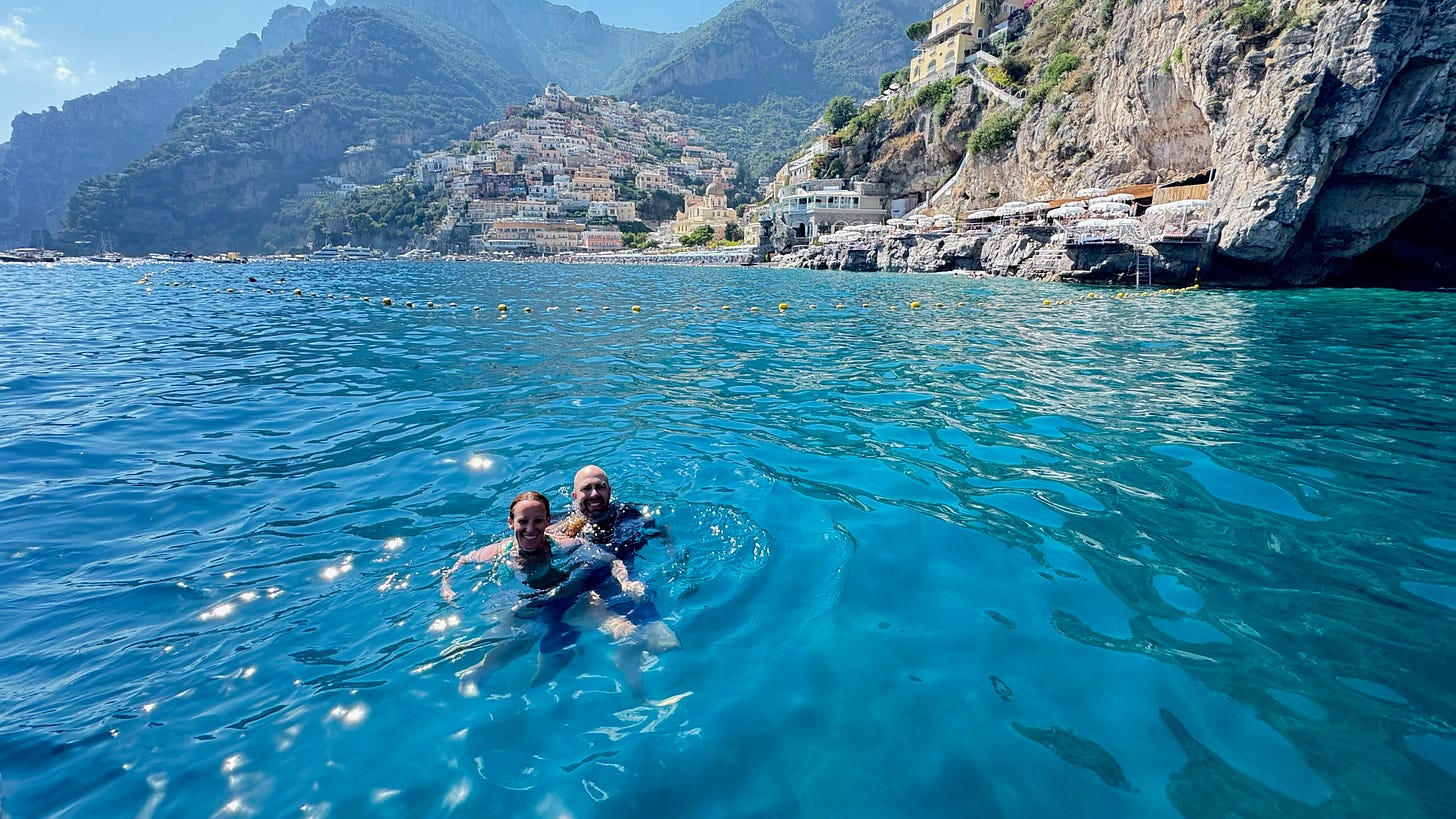Photo credit: me.
(A four-minute read.)
As I mentioned a month or so ago, this summer was going to be full of travel. Since July 1 (28 days ago), I’ve been to England, Italy, Oregon, Alberta (Canada), and Nova Scotia (Canada).
I haven’t suddenly become wealthy. My wife (Camille) and I went to England and Italy for our twentieth wedding anniversary after years of saving; we went to Oregon for Camille’s triennial family reunion (which we normally spend three years saving up credit card points for); I spoke in Alberta for a church event; and we drove to my family’s place in Nova Scotia.
I share all this simply to set the table for a theme I keep coming back to in my writing every ten or 12 months: a deep, deep longing.
I’m thinking of Italy and Nova Scotia especially.
It Italy, Camille and I spent five days on the Amalfi Coast. It was every bit as enchanting and magical as I dreamed of—and even more so. We decided to just take it easy—spending time on the beach and in the water; taking a boat trip one day where we snorkeled, dove into the warm but refreshing Mediterranean waters in charming Positano, and wove between the superyachts of the rich and famous (the biggest one we saw belonged to Shad Khan, owner of the Jacksonville Jaguars and Fulham FC, which is worth some $360 million).
As I said, it was glorious.
Here in Nova Scotia (where we’ll be for another day), my favorite activities involve water as well. Though it’s been really windy our whole trip for some reason, we’ve still spent time at the beach and in our lake. A couple days ago I just laid on our raft (sans any electronic devices) for an hour or so, about a hundred feet off the lake shore, soaking in the sun and taking in the beauty of nature.
I was also reminiscing about years past, when my young children would spend hours jumping off the raft (like the picture I included above, taken in 2018), giggling with joy and reveling in the glory of innocent pleasure.
It was perfection personified.
But these moments, as I’ve shared repeatedly, leave me feeling a type of joy C. S. Lewis talks about. It’s a joy that is also characterized by longing and even a little pain—like something’s missing. It’s a joy that is sort of a tease.
I’ve shared many, many quotes from Lewis on this idea before, but here’s another one—which is very long, so stick with it—from The Weight of Glory that perfectly describes it:
In speaking of this desire for our own far off country, which we find in ourselves even now, I feel a certain shyness. I am almost committing an indecency. I am trying to rip open the inconsolable secret in each one of you—the secret which hurts so much that you take your revenge on it by calling it names like Nostalgia and Romanticism and Adolescence; the secret also which pierces with such sweetness that when, in very intimate conversation, the mention of it becomes imminent, we grow awkward and affect to laugh at ourselves; the secret we cannot hide and cannot tell, though we desire to do both. We cannot tell it because it is a desire for something that has never actually appeared in our experience. We cannot hide it because our experience is constantly suggesting it, and we betray ourselves like lovers at the mention of a name. Our commonest expedient is to call it beauty and behave as if that had settled the matter. Wordsworth’s expedient was to identify it with certain moments in his own past. But all this is a cheat. If Wordsworth had gone back to those moments in the past, he would not have found the thing itself, but only the reminder of it; what he remembered would turn out to be itself a remembering. The books or the music in which we thought the beauty was located will betray us if we trust to them; it was not in them, it only came through them, and what came through them was longing. These things—the beauty, the memory of our own past—are good images of what we really desire; but if they are mistaken for the thing itself they turn into dumb idols, breaking the hearts of their worshipers. For they are not the thing itself; they are only the scent of a flower we have not found, the echo of a tune we have not heard, news from a country we have never visited.
That last sentence especially—“they are only the scent of a flower we have not found, the echo of a tune we have not heard, news from a country we have never visited”—is such a clincher for me, perfectly enunciating what I feel.
As I lie there on the boat on the Amalfi Coast, gently rocking on turquoise waters, sitting beneath sun-drenched cliffs—as I recline on the raft in the middle of the lake in Nova Scotia, reveling in the glorious beauty—I am merely smelling the “scent of a flower” I have not yet found.
And I long for the “far off country” to which it points—the experience of eternal life I believe I was created to experience.
Postscript: here are a few photos I captured of our time on the Amalfi Coast (with an assist to our boat-driver Enrico for a couple of the shots).
Shawn is a pastor and church planter in Portland, Maine, whose life, ministry, and writing focus on incarnational and embodied expressions of faith. The author of four books and a columnist for Adventist Review, he is also a DPhil (PhD) candidate at the University of Oxford, focusing on nineteenth-century American Christianity. You can follow him on Instagram, and listen to his podcast Mission Lab.












Beautiful quote from CS Lewis, indeed! 🙏❤️
And beautiful pics, Shawn: thanks for sharing! 🙂❤️🙏